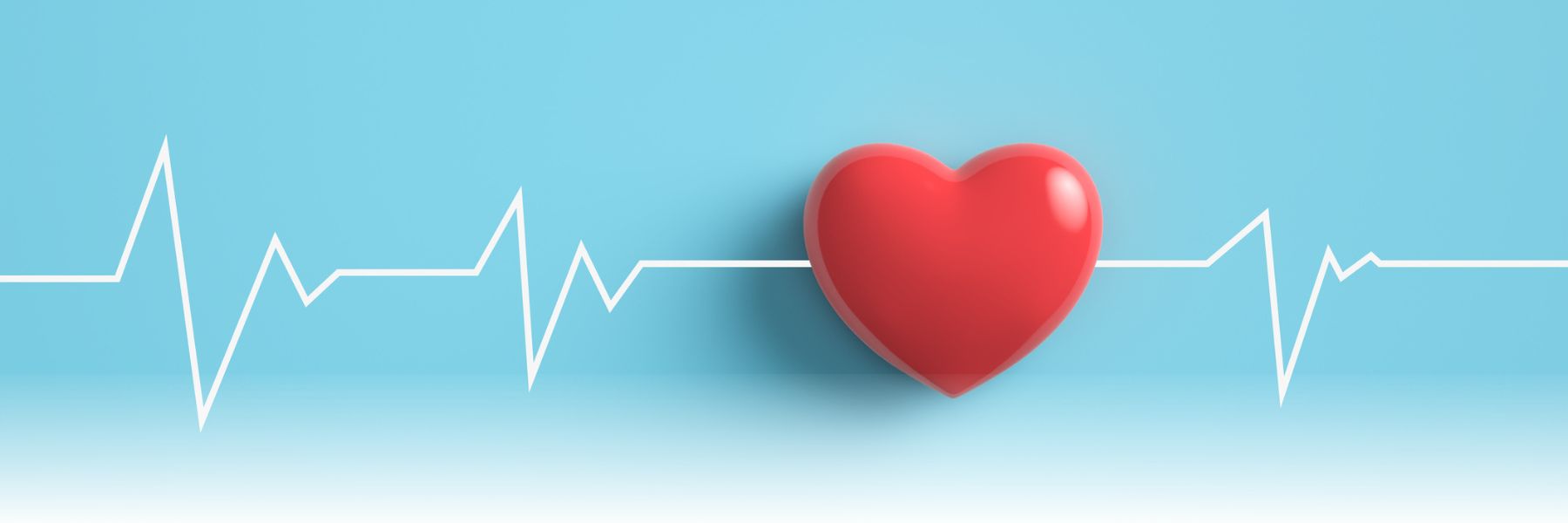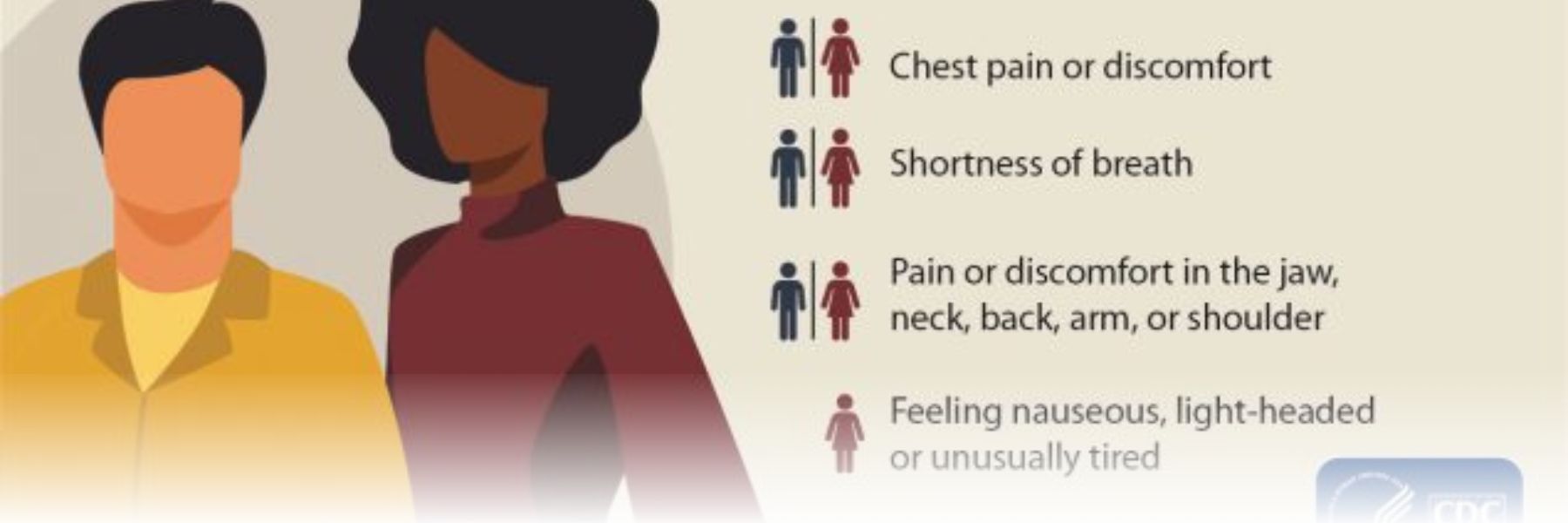
Keeping Your Heart Healthy
February is here and that means it is American Heart Month. Heart Health Month is a time when everyone is encouraged to focus on their cardiovascular health. Let’s take a look at common heart-related health issues and prevention tips for keeping your heart healthy.
Understanding Heart Disease and Its Symptoms
The term “heart disease” refers to several types of heart conditions. The most common type of heart disease is coronary artery disease, which affects the blood flow to the heart. Decreased blood flow can cause a heart attack.
Sometimes heart disease may be “silent” and not diagnosed until a person experiences signs or symptoms of a heart attack, heart failure, or an arrhythmia. When these events happen, symptoms may include:
- Heart attack: Chest pain or discomfort, upper back or neck pain, indigestion, heartburn, nausea or vomiting, extreme fatigue, upper body discomfort, dizziness, and shortness of breath.
- Arrhythmia: Fluttering feelings in the chest (palpitations).
- Heart failure: Shortness of breath, fatigue, or swelling of the feet, ankles, legs, abdomen, or neck veins.
Know the Risks that Increase Heart Disease
Several medical conditions and lifestyle choices can put people at a higher risk for heart disease, including:
- Diabetes
- High blood pressure
- High cholesterol
- Smoking
- Obesity
- Unhealthy diet
- Physical inactivity
- Excessive alcohol use
Tips for Protecting Your Heart
To reduce your chances of getting heart disease, it’s important to do the following:
- Know your blood pressure. Having uncontrolled blood pressure can result in heart disease. It’s important to have your blood pressure checked regularly.
- Talk to your doctor about whether you should be tested for diabetes.
- Quit smoking.
- Discuss checking your cholesterol and triglyceride levels.
- Make healthy food.
- Limit alcohol intake.
- Lower your stress level and find healthy ways to cope with stress.

What is Cardiac Arrest?
Over 356,000 people have an out-of-hospital cardiac arrest every year. Cardiac arrest occurs when the heart suddenly and unexpectedly stops beating.
A person may be in cardiac arrest if they:
- Collapse suddenly and lose consciousness
- Are not breathing or are gasping for air
- Don’t respond
- Don’t have a pulse
If you believe someone is having a cardiac arrest, call 9-1-1 immediately, and give CPR until medical professionals arrive.
Cardiac arrest has several causes, including:
- Cardiomyopathy, happens when the heart muscle becomes enlarged or stiff, leading to abnormal contractions
- Coronary artery disease, restricts the flow of blood to the heart
- Valvular heart disease
- An arrhythmia, the heart beats too slowly, too fast, or in an irregular way
- Although rare (fewer than 30 reported cases annually), a forceful blow to the chest, as from a hard ball or steering wheel, can also cause cardiac arrest.
Cardiac Arrest vs. a Heart Attack
Although the terms are often used interchangeably, a heart attack and cardiac arrest are not the same medical event. A heart attack happens when a part of the heart muscle doesn’t get enough blood.

Recognizing the Symptoms of a Heart Attack
The major symptoms of a heart attack include:
- Chest pain or discomfort. Most heart attacks involve discomfort in the center or left side of the chest that lasts for more than a few minutes or that goes away and comes back. The discomfort can feel like uncomfortable pressure, squeezing, fullness, or pain.
- Feeling weak, light-headed, or faint. You may also break out in a cold sweat.
- Pain or discomfort in the jaw, neck, or back.
- Pain or discomfort in one or both arms or shoulders.
- Shortness of breath. This often comes along with chest discomfort, but shortness of breath also can happen before chest discomfort.
- Unusual or unexplained tiredness.
- Nausea or vomiting.
Key Risk Factors that can Lead to a Heart Attack
Several health conditions, your lifestyle, and your age and family history can increase your risk for experiencing a heart attack. Key risk factors include:
- high blood pressure
- high blood cholesterol
- smoking

Coronary Artery Disease (CAD)
Coronary artery disease (CAD) is caused by plaque buildup in the wall of the arteries that supply blood to the heart. Plaque buildup causes the inside of the arteries to narrow over time.
Coronary artery disease is the most common type of heart disease in the United States. For some people, the first sign of CAD is a heart attack. Angina, or chest pain and discomfort, is the most common symptom of CAD.
Obesity, physical inactivity, unhealthy eating, and smoking are risk factors for CAD. A family history of heart disease also increases your risk for CAD, especially a family history of having heart disease at an early age.
Lowering Your Risk for a Heart Attack
If you have CAD, your health care team may suggest the following steps to help lower your risk for heart attack or worsening heart disease:
- Lifestyle changes, such as eating a healthier diet, increasing physical activity, reaching a healthy weight, and quitting smoking.
- Medicines to treat risk factors for CAD, such as high cholesterol, high blood pressure, or an irregular heartbeat.
- Surgical procedures to help restore blood flow to the heart.
Atrial Fibrillation (AFib)
Atrial fibrillation, often called AFib, is the most common type of treated heart arrhythmia. An arrhythmia is when the heart beats too slowly, too fast, or in an irregular way. When a person has AFib, the normal beating in the upper chambers of the heart is irregular, and blood doesn’t flow as well as it should from the atria to the lower chambers of the heart. AFib may happen in brief episodes, or it may last for an extended period.
Some people who have AFib don’t know they have it and don’t have any symptoms. The risk for AFib increases with age.
Others may experience one or more of the following symptoms:
- Irregular heartbeat
- Heart palpitations
- Lightheadedness
- Extreme fatigue
- Shortness of breath
- Chest pain

Health Risks that Affect the Heart
High blood pressure
High blood pressure is a major risk factor for heart disease. It is a medical condition that happens when the pressure of the blood in your arteries and other blood vessels is too high. The high pressure can affect your heart and other major organs of your body, including your kidneys and brain.
High blood pressure is often called a “silent killer” because it usually has no symptoms. The only way to know whether you have high blood pressure is to measure your blood pressure. You can lower your blood pressure with lifestyle changes or with medicine to reduce your risk for heart disease and heart attack
High blood cholesterol
High blood cholesterol levels also a danger to your heart. Cholesterol is a fat-like substance made by the liver or found in certain foods. Your liver makes enough for your body’s needs, but we often get more cholesterol from the foods we eat. If we take in more cholesterol than the body can use, the extra cholesterol can build up in the walls of the arteries, including those of the heart.
High blood cholesterol usually has no signs or symptoms. The only way to know whether you have high cholesterol is to get your cholesterol checked. Your doctor can do a simple blood test to measure your cholesterol levels.
Diabetes
Diabetes means that your body needs glucose for energy. Diabetes causes sugar to build up in the blood. The risk of death from heart disease for adults with diabetes is higher than for adults who do not have diabetes.
Obesity
Obesity, excess body fat, can lead to high blood pressure and diabetes as well as heart disease. Talk with your health care team about a plan to reduce your weight to a healthy level.
Genetic factors
Genetic factors play some role in high blood pressure, heart disease, and other conditions. It is likely that people with a family history of heart disease share other factors that may increase their risk. The risk for heart disease can increase even more when heredity combines with unhealthy lifestyle choices. By living a healthy lifestyle, you can help keep your blood pressure, cholesterol, and blood sugar levels normal and lower your risk for heart disease.
A Happy, Healthy Heart Matters
American Heart Month is a great reminder for all of us to focus on our heart health. By understanding the symptoms of heart disease and the risk factors associated with it, you can take proactive steps to keep your heart healthy. Making positive lifestyle choices, such as maintaining a healthy weight, routine visits with your doctor, staying active, and avoiding smoking and excessive alcohol use, can greatly reduce your risk. Let’s continue to prioritize our heart health and take care of our amazing hearts!
For more great resources on how aging adults can maintain their heart health, The Ohio Masonic Communities is your go to resource. With three locations in Springfield, Waterville, and Medina, OH, their senior living communities offer 24/7 care and support for independent living, assisted living, and memory care. If you and your loved one are interested in senior living, schedule a tour at one of the scenic and beautiful communities. Call (877) 881-1623 today to learn more about their great senior living options.